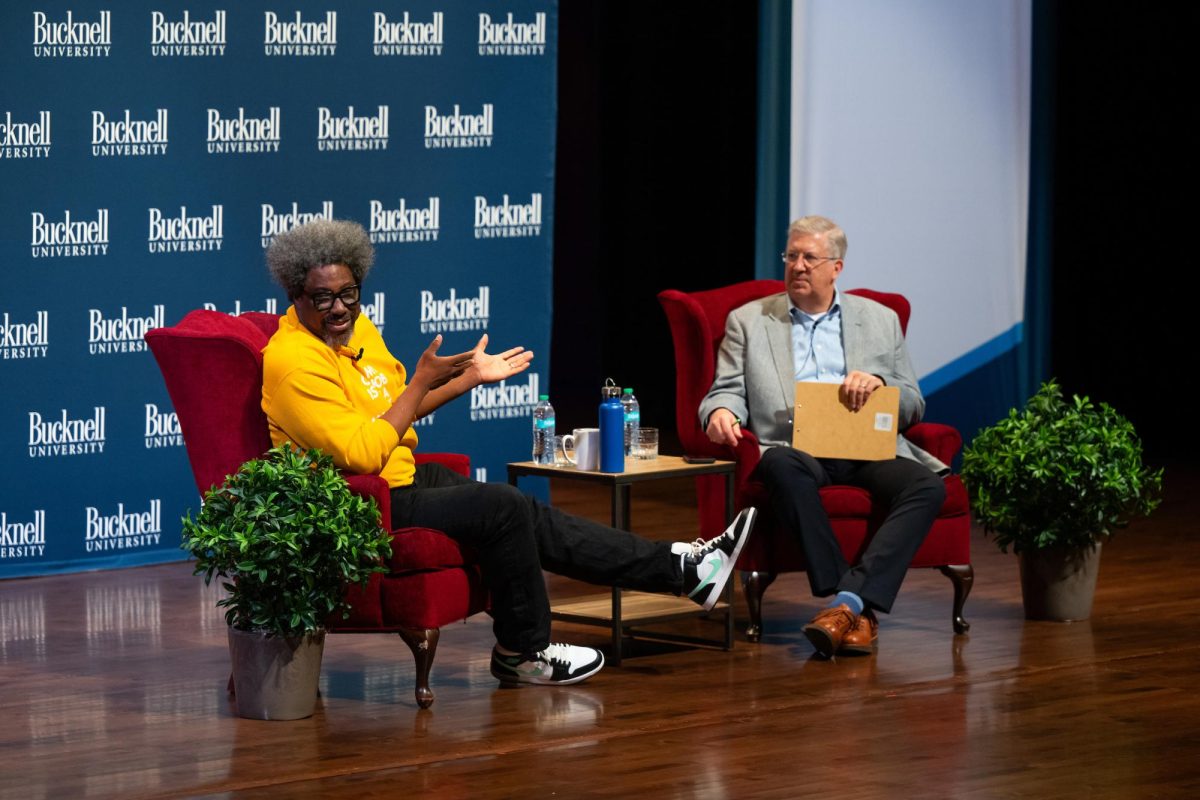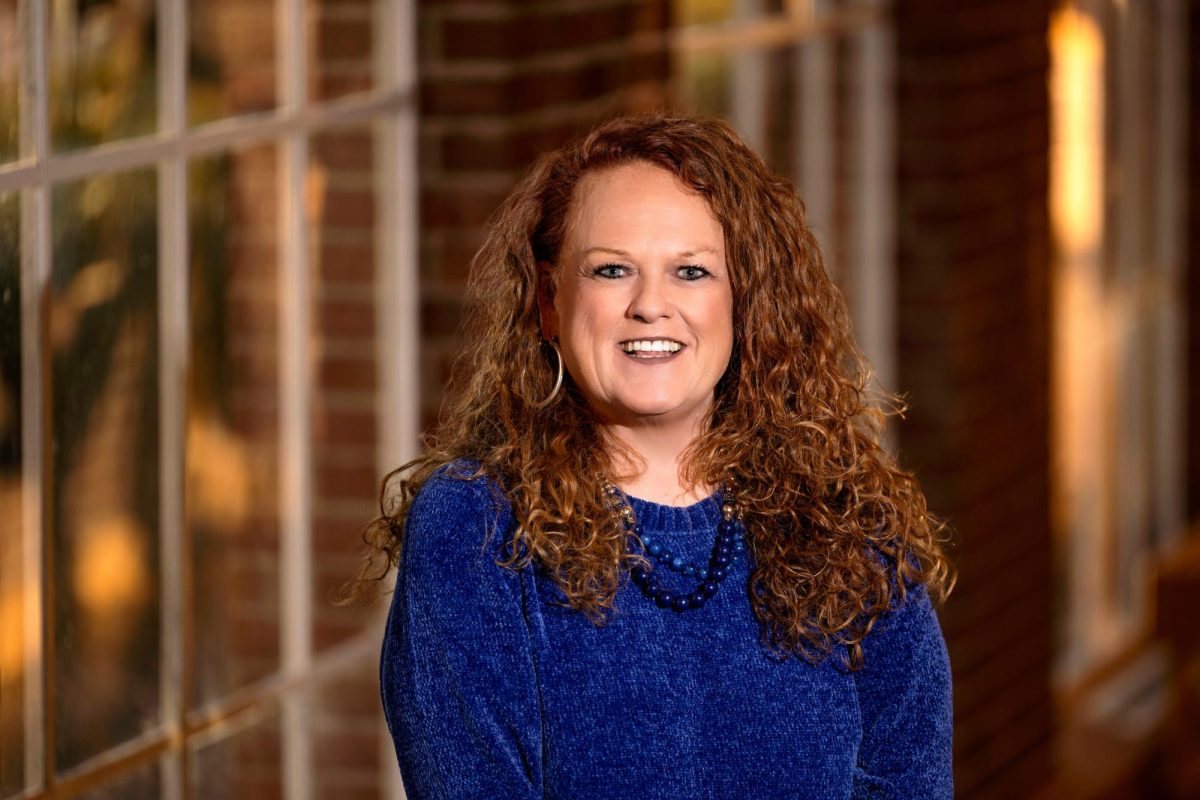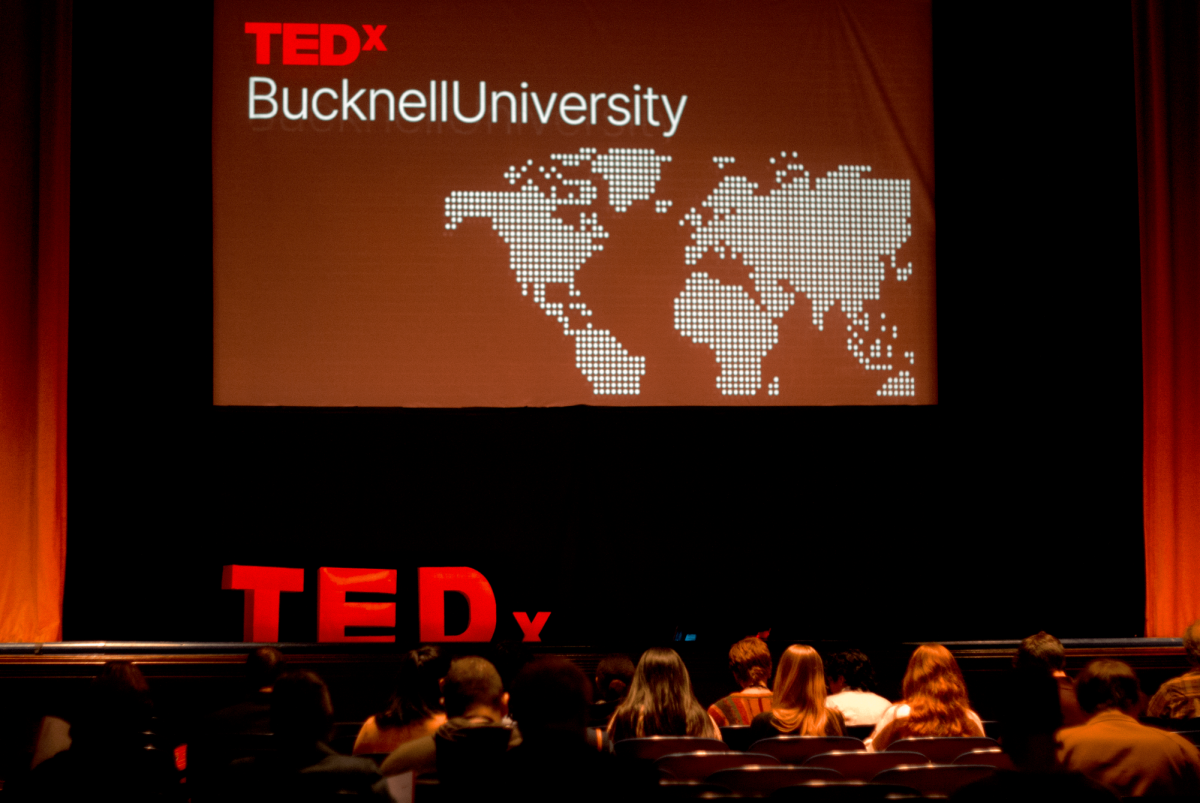The second speaker of the Bucknell Forum lineup for this academic year, W. Kamau Bell, took the Weis Center stage this past Tuesday, Oct. 22 in an extended conversation with University President John Bravman. Bell immediately began speaking to the theme of the Forum series—World in Transition—as he considered his own personal and professional past in relation to where he is now: “We’re always in transition. It’s just sometimes, they’re more hopeful than others.”
Bell is a comedian-turned-media-presence, with a career that spans American news media outlets, television and docu-series, comedy specials as well as autobiographical essay collections. His work of comedy and politics “melded together” around Barack Obama’s Presidential campaign in the 2000s, which set Bell on the path of his current career.
“It’s great that we have more media sources than before,” Bell said of the increase in independent and accessible media and news reporting available on the internet. Without that expansion of media, “I wouldn’t have a career,” Bell joked, but such prolific information often functions as a double-edged sword. Standards of practice have fallen to the wayside in favor of a constant news cycle that prioritizes engagement over complete accuracy; “clarity in communication,” in both online and physical spaces, “is being lost,” and, in Bell’s opinion, makes the transition between impactful events (and good-faith debate surrounding them) harder.
On some level, “we’re still dealing with the disconnect between what America said it was and what it actually is,” which leads to conflict over “who gets to be a person” and what rights come with that— a conflict that, Bell believes, stems from the very wording of America’s founding documents that begin with “We the People.”
Inherent to that debate is a need for people to be and stay informed, but as Bell has experienced over the course of his ongoing career, access to technology is essential to maintaining that awareness and a lack of it can be hugely detrimental. Reflecting on his experience witnessing socioeconomically challenged students being forced to sit outside McDonald’s to gain access to Wi-Fi during COVID Zoom schooling, Bell mused that “you can’t get through America without technology,” but technology “is not a right.” Many technological disadvantages aren’t as obvious as that, but they manifest in an uninformed populace that is unaware of essential (nonobvious) current events.
He has no magical solution to address these disparities—nobody does!—but the first step in most situations, for Bell, is to just “shut up and listen.” As he grows older, Bell recognizes the importance of aging in a way that “still allows for learning” and growth. “It’s better to stumble over new things than to not try,” especially considering the speed at which “culture [continues to be] updated [and] evolve.”
Part of the role Bell has taken upon himself as a comedian and host is to “learn in real time,” through which he hopes to, by extension, “[help] the audience to do the same.” Humor is made, he says, “for the tough times,” not the “perfect” ones. “Humor is a part of human interaction” and Bell wants his comedy to be a vessel for greater understanding and connection. People often have a tendency to approach polarizing issues with anger as their “delivery system” instead of their “fuel”— by lightening conversations and choosing more productive approaches to discussion, Bell’s work is contributing to his goals of normalizing personal growth and nonjudgmental, good-faith interactions.
For every American, Bell recommends a media diet that incorporates multiple sources and branches out beyond monolithic corporate sources. In terms of relevant comedy, Bell champions the work of Josh Johnson and Ali Wong. He himself has been inspired by comedians like George Carlin, Eddie Murphy, Bill Hicks and the ever-classic Bill Cosby (about whom Bell made a documentary in 2022).

























